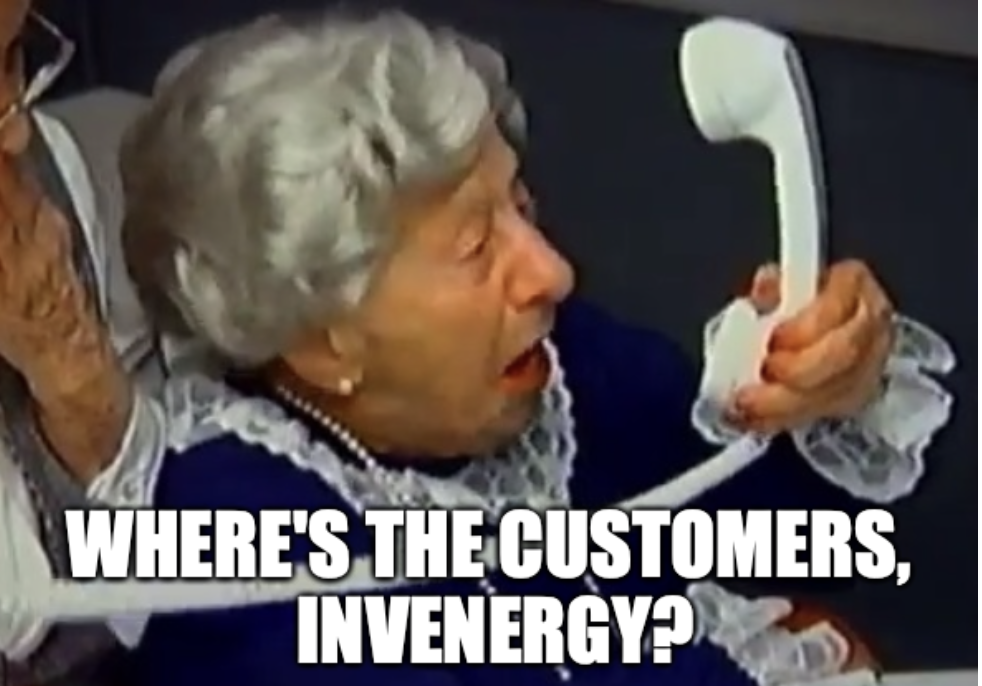Unfortunately, the record demonstrates that GBX failed to provide any evidence to meet the burden required by section 8-406.1(f)(3). To satisfy section 8-406.1(f)(3), the applicant must show that it is capable of financing the construction of the proposed project. Therefore, GBX must prove that it has the capacity to finance the project prior to the Commission granting any CPCN. Stated differently, the applicant’s capability of financing the project is a condition precedent to the Commission’s issuance of a CPCN.
While appearing before the Commission, GBX did not claim that it had the capability of funding the project. Instead, GBX claimed that it expects to be able to obtain financing for the project once customer contracts are executed, supply agreements are executed, and site control is obtained in the future. But in addition to this, it also plans on heavily relying upon debt financing. It calls this method of speculative financing, the “project financing approach.” GBX stated that it anticipates financing approximately 65% to 80% of the project through debt, with the debt being funded largely through the Department of Energy grants or commercial banks. However, at the time of the Commission’s decision, GBX had no customers for the project, no commitments from any financial institution, and had not been awarded any funding or debt commitments from the Department of Energy to provide financing for the project. What is even more concerning is that the wind farm and renewable projects in Kansas, for which this transmission line is supposedly necessary in order to distribute the “clean energy” these projects will produce and deliver to Illinois, do not exist. Quite simply, the projects had not been constructed at the time of the Commission’s Final Order, and no evidence was put forth indicating that any commitments, contracts, or construction bids had been obtained or negotiated.
And why shouldn't speculative projects be approved? Because they can go on to fail, after they have caused landowners time, money and worry. Simply having a "plan" to return the land to the landowner in the event of failure is not a cure. It does not make the landowner whole. Landowners deserve to be protected from speculative ventures seeking eminent domain.
We note that the sister project in Northern Illinois which was overseen by Rock Island has allegedly been abandoned despite the contentions of GBX before the Commission of the necessity and market demand for such a project. Thus, GBX has not offered any evidence that it “is capable” of funding the project; it instead has only offered evidence of a future, and highly speculative, plan of possibly funding the project. It simply asked the Commission to broadly speculate, and to trust that many unknown variables will fall into place. It does not contend, “let us build it and they will come,” but instead, “give us approval, then we will finance it, and then we will build it.” This falls short of proving the financing capability required.
Ultimately, there was no showing that GBX as it was situated at the time of the Commission’s hearing and decisions was financially able to finance and construct the project. In fact, GBX acknowledged before the Commission that it had no customers for the project, had secured no bank commitments, no Department of Energy commitments, etc. It asked the Commission to speculate as to its future capability, and the Commission improperly obliged.
Therefore, the Final Order entered by the Commission finding otherwise was made in error and requires reversal.
For the foregoing reasons, we reverse the Commission’s March 8, 2023, order granting GBX a CPCN pursuant to section 8-406(b-5) and other related provisions.
GBE has several options here:
1. Appeal to the Illinois Supreme Court and hope they take the case.
2. Get customers and financing commitments, along with contracts for the wind farms in Kansas. This option is going to take years. GBE has applied for a National Interest Electric Transmission Corridor (NIETC) that would allow it to take the Illinois denial to the Federal Energy Regulatory Commission and go through the whole permitting process again. Getting a NIETC designation is going to take at least another 3 years. Who knows how long the wind farms in Kansas are going to take? They probably come under the category of "customers." GBE would also have to have its loan of taxpayer money approved by the DOE, but why should DOE approve a loan for such a speculative project that doesn't have any customers to create a revenue stream?
Speculative. Word of the day!
Bravo, Illinois! Celebrate this victory!

 RSS Feed
RSS Feed